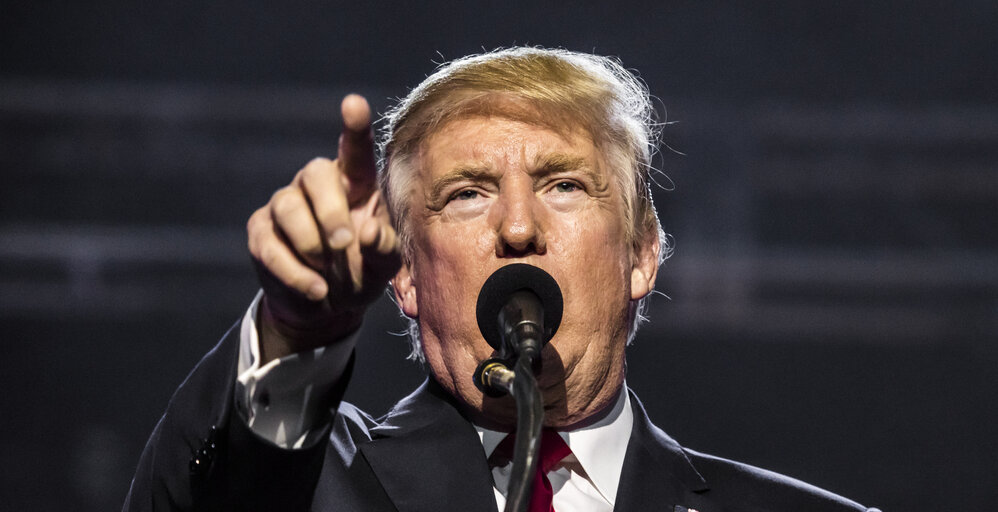Bitcoin (BTC) has been trading inside a depleting trading range for almost two weeks, primarily as traders await the United States Presidential Election on Nov. 5.
Tight US presidential race keeps Bitcoin flat
Specifically, Bitcoin has struggled to maintain momentum above $69,000 across October, with each breakout attempt triggering a pullback toward a rising support zone between $64,000 and $67,000.
BTC/USD daily price chart. Source: TradingView
The cryptocurrency’s trading range is now getting narrower a week ahead of the US presidential election.
That is primarily due to mixed survey results between Donald Trump, who has shown a clear pro-crypto stance, and Kamala Harris, whose policies on digital assets remain ambiguous.
Related: Trump win, ‘regulatory sanity’ is bad news for memecoins: Professor
For instance, the CBS News/YouGov poll suggests a neck-and-neck race, with Harris holding a marginal lead of 50% to 49% over Trump among likely voters. However, Polymarket's betting data paints a different picture, showing a strong lead for Trump, with a 66.5% chance of winning compared to Harris’s 33.5%.
Presidential election winner 2024 bets. Source: Polymarket
A pro-crypto administration might lead to favorable regulation, while a cautious or unclear stance could introduce stricter oversight. This ambiguity keeps traders on edge, preferring to hold off on major moves until the election results provide a clearer direction.
Bitcoin ETF demand absorbs selloff pressure
Bitcoin's price is stuck further due to conflicting market bias between US retail investors and institutional players.
On Oct. 25, the Coinbase Premium Index, which measures the price difference between Bitcoin on Coinbase (US-based exchange) and global exchanges like Binance, hit its yearly low of -0.20, indicating growing selling pressure from US retail investors.
Bitcoin Coinbase premium index. Source: CryptoQuant
In contrast, Bitcoin Spot ETFs, which are often favored by US institutional investors, recorded their highest weekly inflow of $402 million on the same day.
Spot Bitcoin ETF cumulative inflows. Source: Farside Investors
Additionally, high-profile investments like Emory University's $15 million allocation to a Spot Bitcoin ETF indicate that institutions remain confident in Bitcoin's long-term prospects.
Bitcoin is confirming a bull flag breakout
Bitcoin is testing the upper trendline of its bull flag pattern as support after breaking above it on Oct. 15, showing it does not have sustained enough momentum to confirm a definitive breakout yet.
That has resulted in a period of consolidation around the $68,000 range. Furthermore, the trading volume on the breakout attempts is moderate.
Ideally, a breakout confirmation from a bull flag requires a noticeable spike in volume, indicating strong buying interest.
BTC/USD three-day price chart. Source: TradingView
Traders are hesitant to commit to large positions until they see a clear signal, leading to a flat price action in the Bitcoin market.
Related: How long will Bitcoin’s price consolidation last?
Additionally, the Relative Strength Index (RSI) sits around 60, suggesting that Bitcoin is in a moderately bullish phase without being overbought, giving it room to continue upward if volume picks up.
If Bitcoin confirms the breakout, the bull flag pattern's technical target can be projected by measuring the flagpole's height and adding it to the breakout point. This calculation suggests a price target around $101,608.
This article does not contain investment advice or recommendations. Every investment and trading move involves risk, and readers should conduct their own research when making a decision.

 4 days ago
6
4 days ago
6






:quality(85):upscale()/2024/10/29/581/n/1922153/3f2adeb76720db8a0484f8.73093870_.jpg)
:quality(85):upscale()/2024/11/01/729/n/49351082/edfd0f616725023b36fdf0.07661898_.jpg)
 English (US) ·
English (US) ·